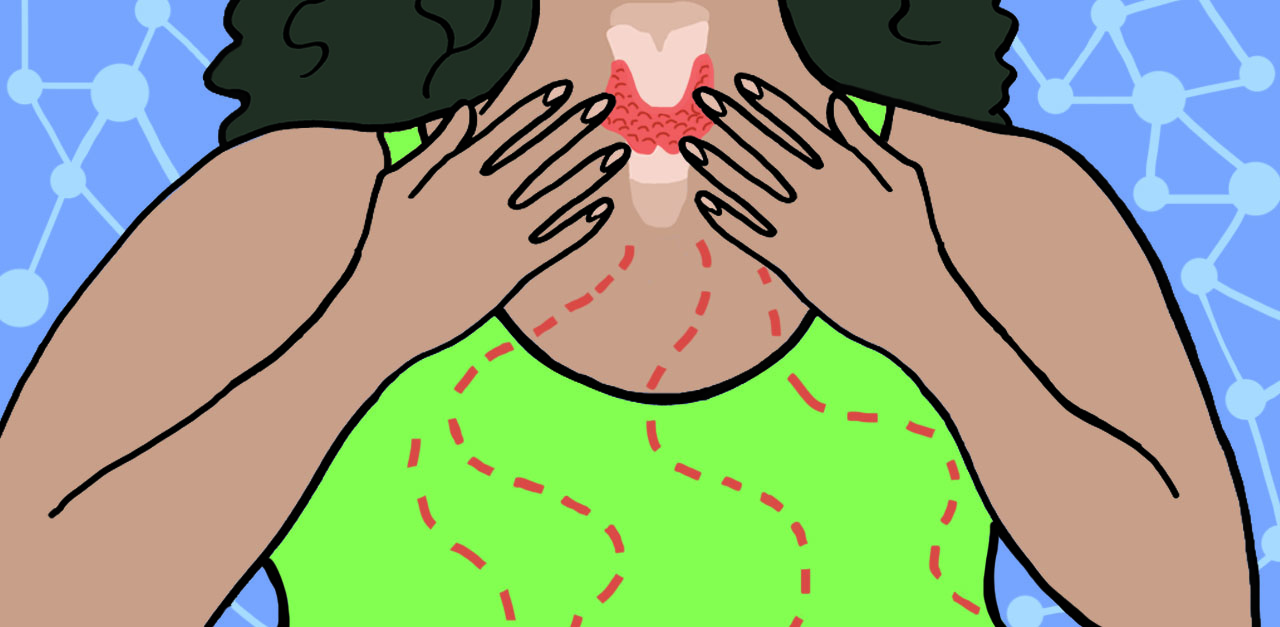
Most people have heard of the thyroid, but many don't know all that much about the gland in our necks. We've heard of thyroid cancer or know someone who has had it, but we don't know a lot about other thyroid conditions.
The thyroid is a butterfly-shaped gland at the base of the neck. It's responsible for many of your hormones, including those that control your metabolism.
According to the American Thyroid Association (ATA), "More than 12% of the US population will develop a thyroid condition during their lifetime."
If that sounds like a pretty big number, it is. That means that one in eight women will have a thyroid disorder at some point in their life.
The scariest thing about thyroid disorders is that most people don't know they have them. The ATA says that "up to 60% of those with thyroid disease are unaware of their condition."
Read below to find out more about some of the most common thyroid disorders!
Photos: Wikimedia Commons / Martin Finborud; Morgan Swofford for LittleThings
What Is The Thyroid?
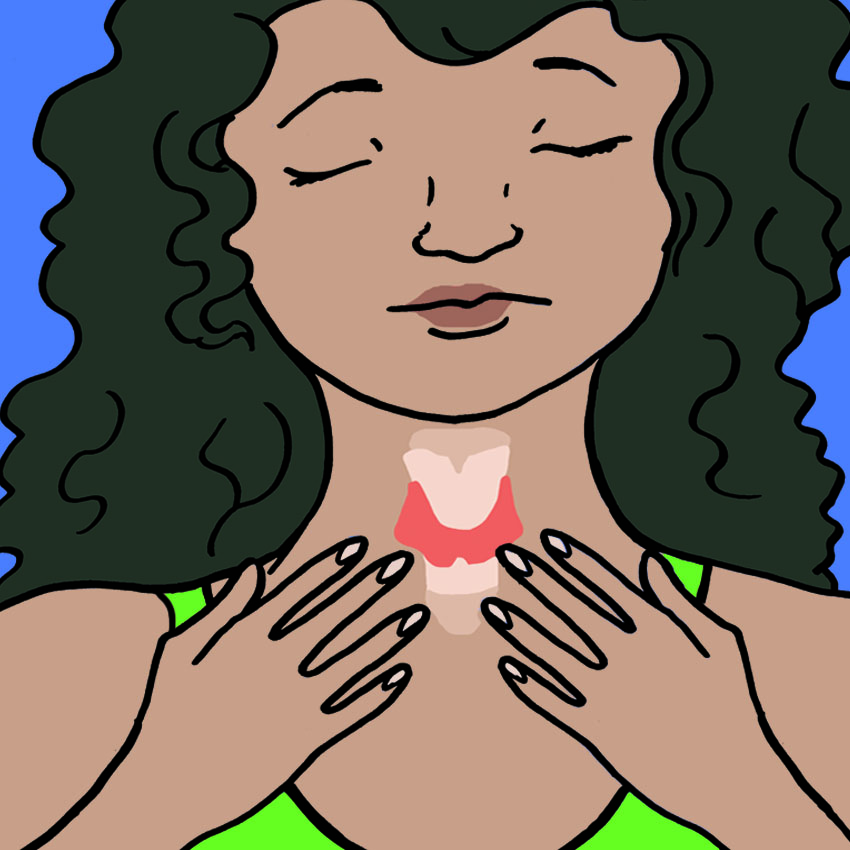
The thyroid is a gland in your neck, just above your collarbone. It is butterfly-shaped.
According to the US National Library of Medicine, "It is one of your endocrine glands, which make hormones. Thyroid hormones control the rate of many activities in your body. These include how fast you burn calories and how fast your heart beats. All of these activities are your body's metabolism."
Disorder #1: Hyperthyroidism
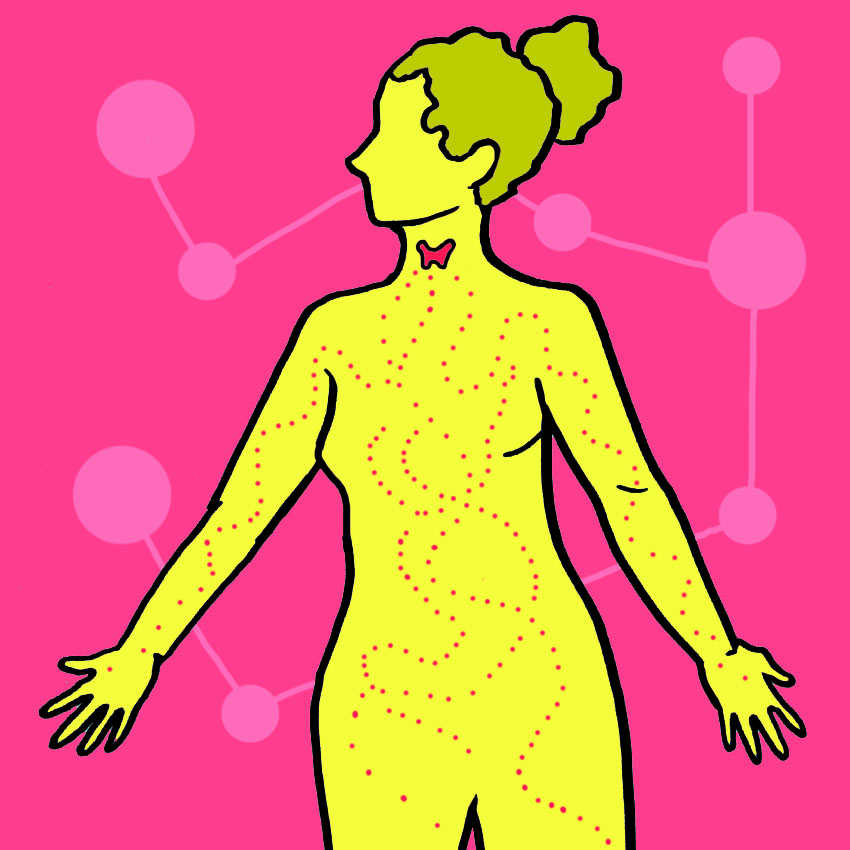
One of the most common thyroid disorders is hyperthyroidism, which occurs when your thyroid is too active.
If you have hyperthyroidism, it means your body produces more thyroid hormones than you need. This means that your metabolism will rise significantly, explains the Mayo Clinic.
Signs Of Hyperthyroidism
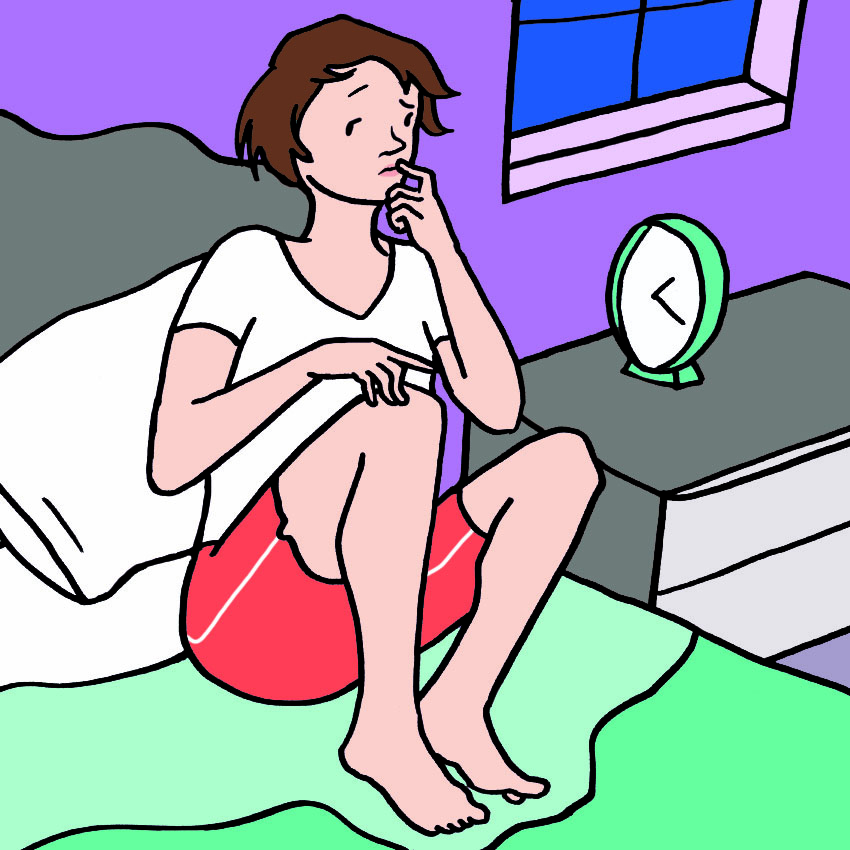
The US National Library of Medicine explains that there are a number of signs and symptoms of hyperthyroidism, including weight loss, rapid/irregular heartbeat, trouble sleeping, mood swings, fatigue, muscle weakness, feelings of irritability or nervousness, hand tremors, heat intolerance, and frequent diarrhea or bowel movements.
Disorder #2: Hypothyroidism
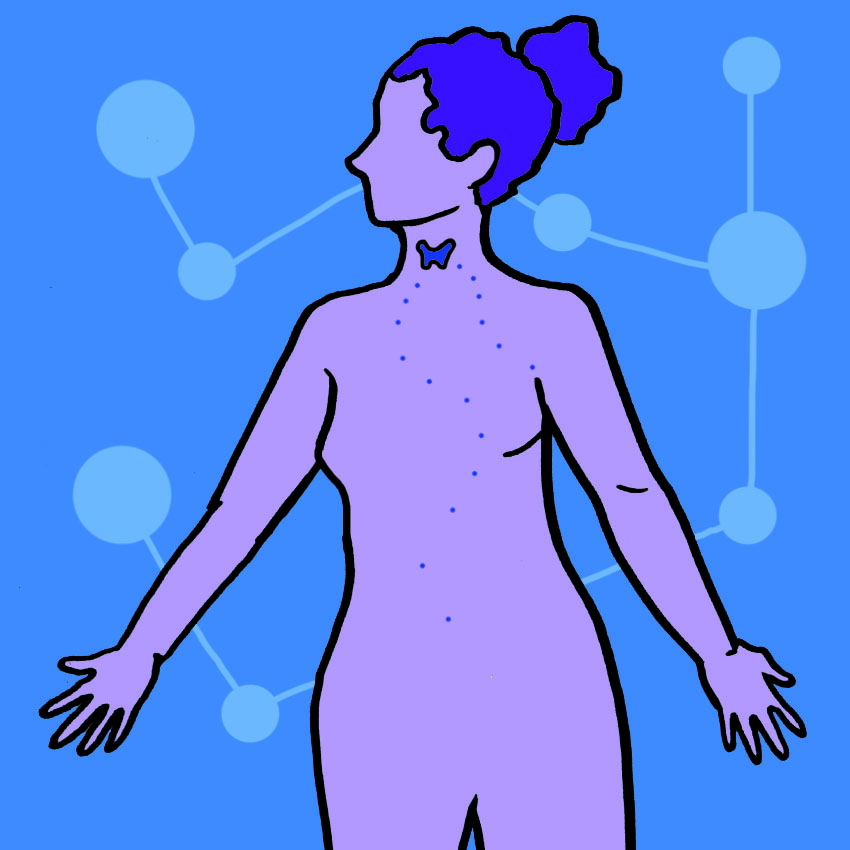
Hypothyroidism, on the other hand, occurs when your body doesn't produce enough thyroid hormone.
During the beginning stages of the disorder, there may not be any symptoms. As it progresses, it can cause various health problems, including heart disease, infertility, obesity, and joint pain, explains the Mayo Clinic.
Signs Of Hypothyroidism
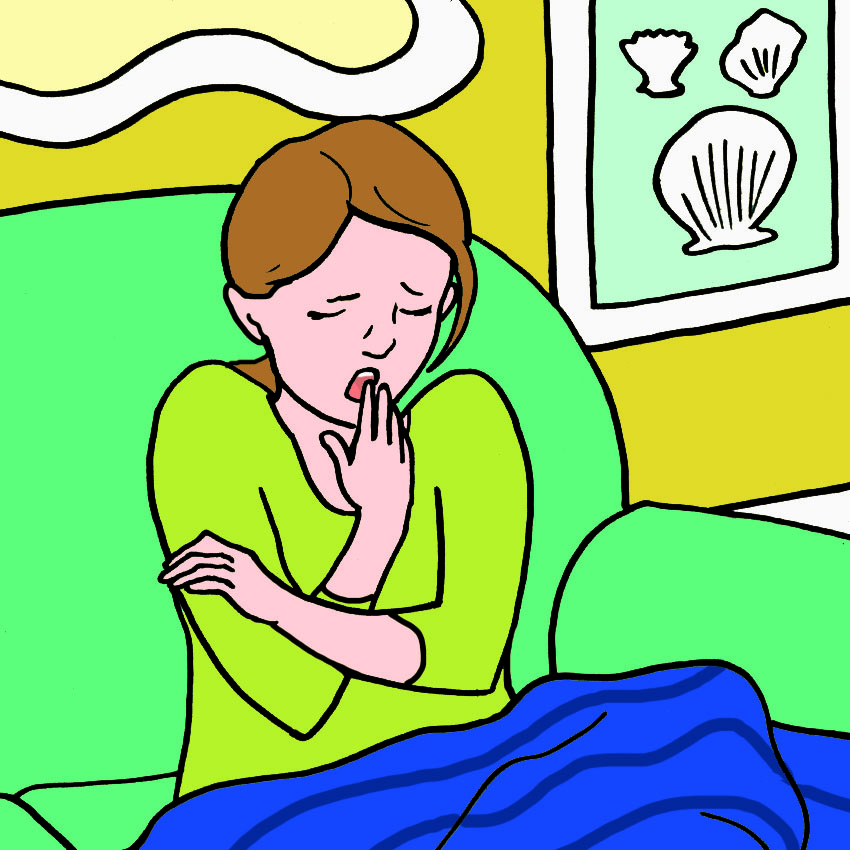
Symptoms of hypothyroidism may vary from person to person.
They typically include some of the following: dry skin and hair, constipation, cold intolerance, fatigue, weight gain, joint pain, muscle pain, a puffy face, decreased sweating, slower heart rate, depression, fertility problems, and heavy/irregular periods.
Disorder #3: Hashimoto's Disease
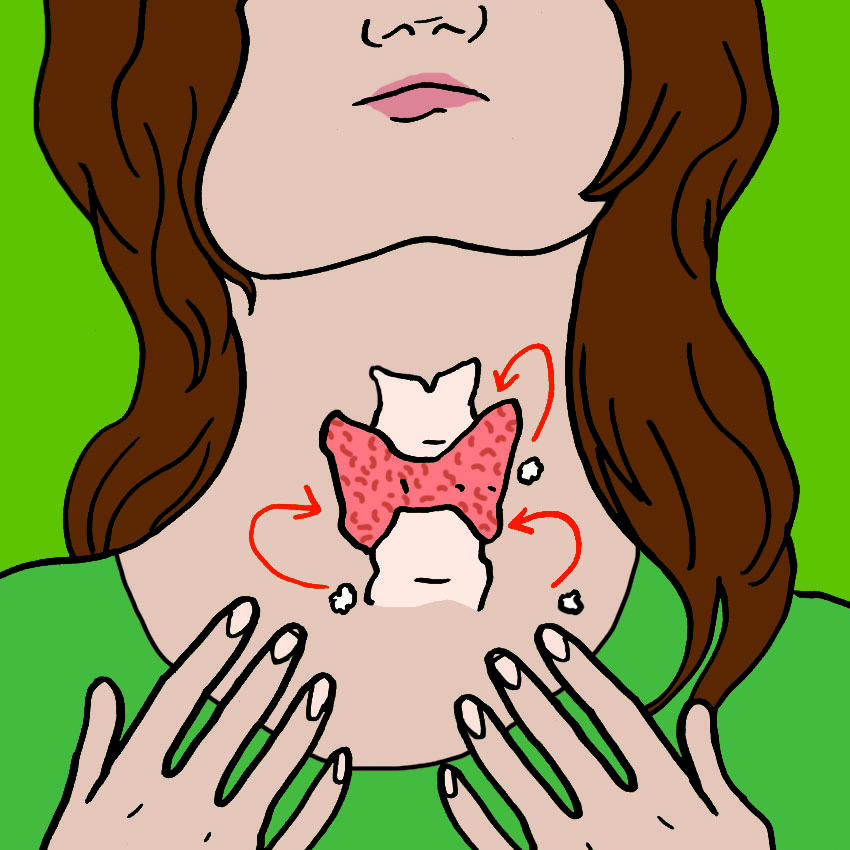
According to the Mayo Clinic, "Hashimoto's disease is a condition in which your immune system attacks your thyroid."
Hashimoto's disease affects middle-aged women most, but it can also affect women of other ages, as well as men.
Signs Of Hashimoto's Disease
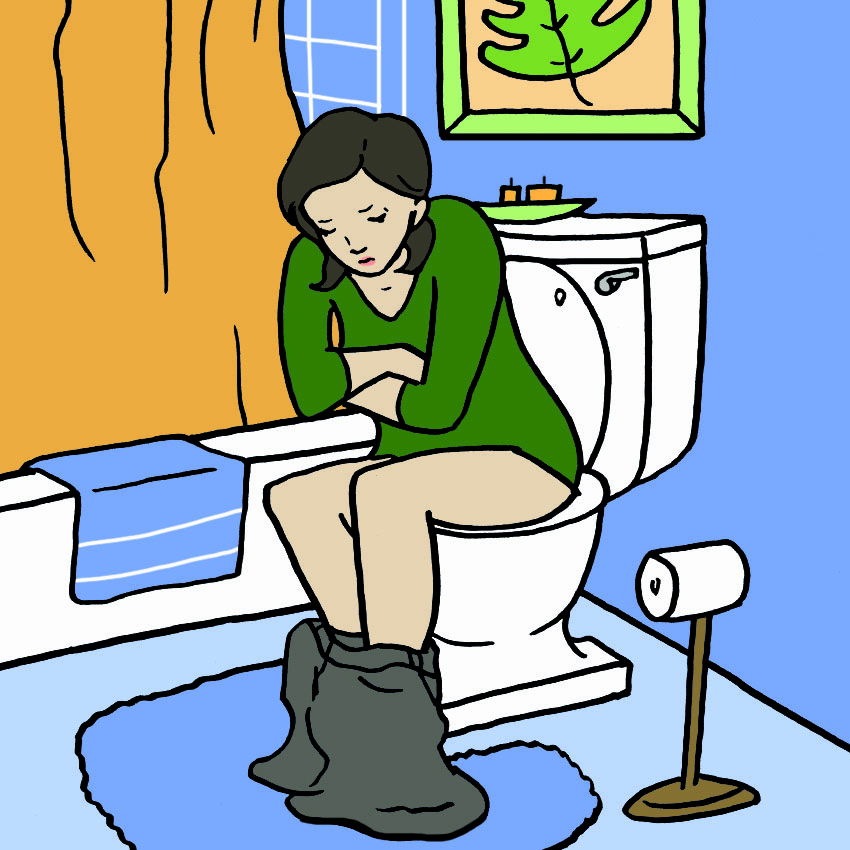
The symptoms of Hashimoto's disease are similar to that of hypothyroidism.
People with Hashimoto's disease may have dry hair, nails, and skin, muscle aches and weakness, depression, memory lapses, constipation, a puffy face, fatigue, sluggishness, weight gain, and joint pain.
Disorder #4: Goiter
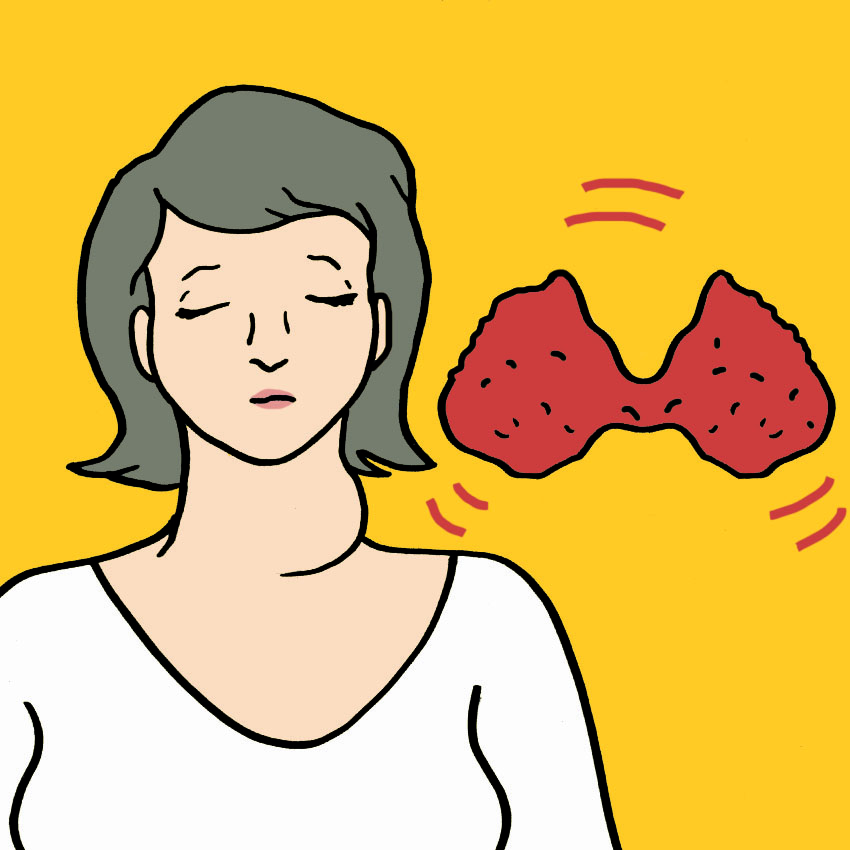
According to the US Department of Health and Human Services' Office on Women's Health, "A goiter is an unusually enlarged thyroid gland."
Some goiters will go away on their own, while others need medical treatment.
And like other thyroid disorders, goiters are more common in women than men.
Signs Of Goiter
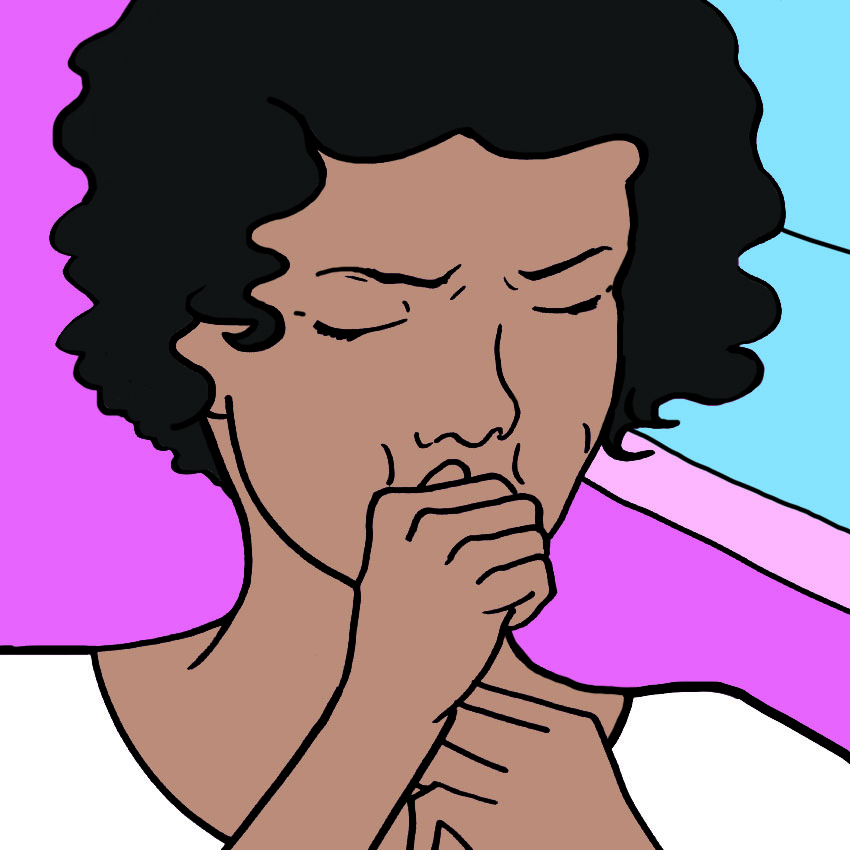
Most goiters are painless, but if they're large they can make it hard for you to breathe or swallow, and they can make you cough.
Other common symptoms of goiters include hoarseness, a tight feeling in the throat, or a visible swelling at the base of the neck.
Disorder #5: Thyroid Nodules
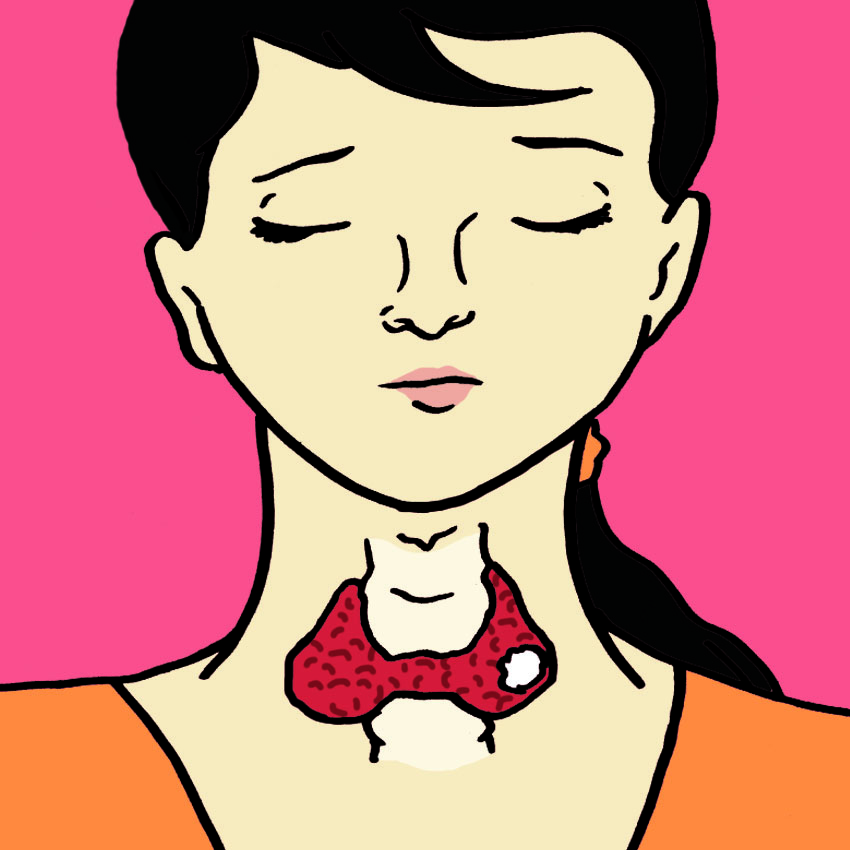
The Office on Women's Health explains, "A thyroid nodule is a swelling in one section of the thyroid gland. The nodule may be solid or filled with fluid or blood."
Women are much more likely to have thyroid nodules than men.
Many thyroid nodules don't cause any symptoms, but if they become large enough, they may become symptomatic.
Signs Of Thyroid Nodules
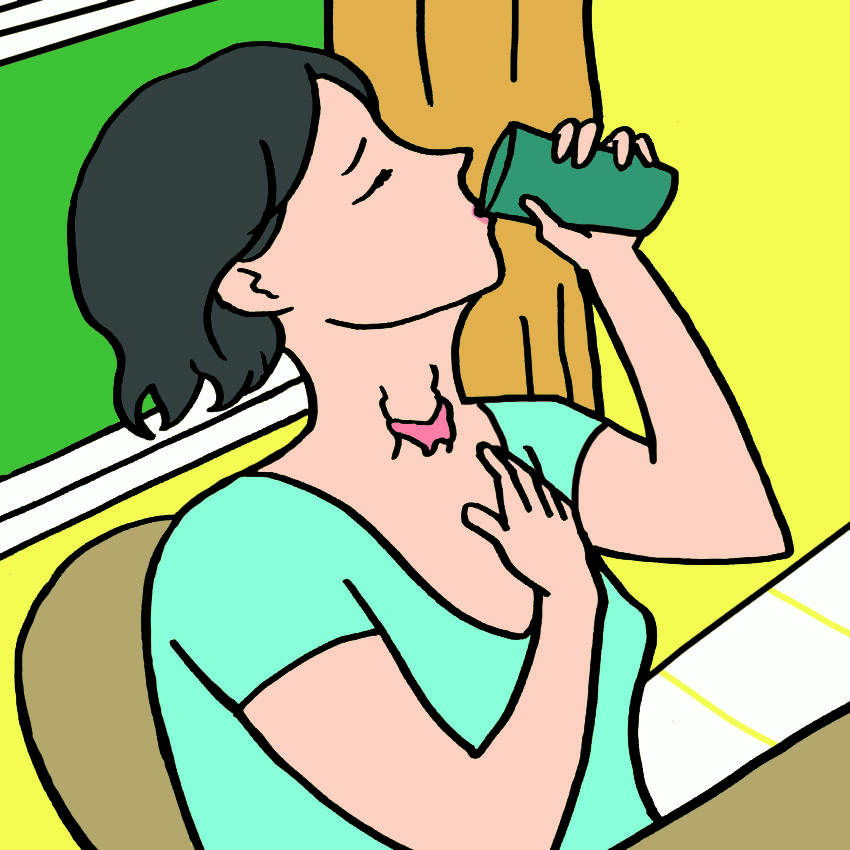
Some of the symptoms of thyroid nodules include unintentional weight loss, nervousness, tremors, irregular/rapid heartbeat, and increased perspiration.
The Mayo Clinic says that some nodules become large enough that they can be seen or felt, and may even press on your esophagus or windpipe.
What To Do If You Think You Have A Thyroid Disorder
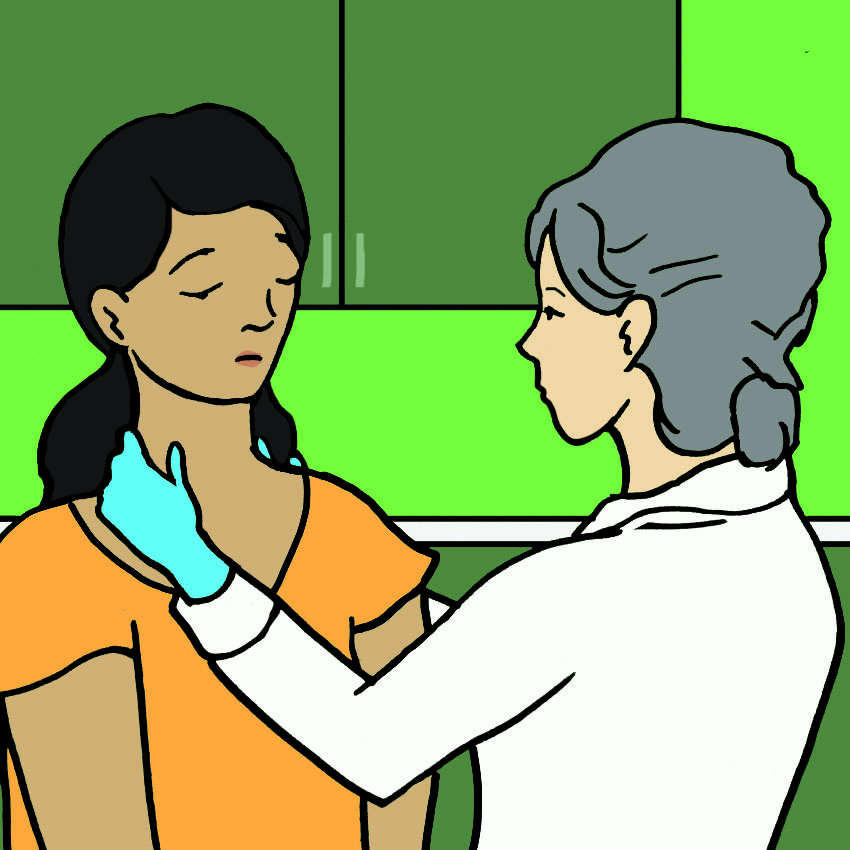
If you think you might have a thyroid disorder, make an appointment with your doctor. They can run diagnostic tests to rule out or diagnose these thyroid conditions.
Please SHARE this article with your friends to spread awareness about thyroid disorders!




